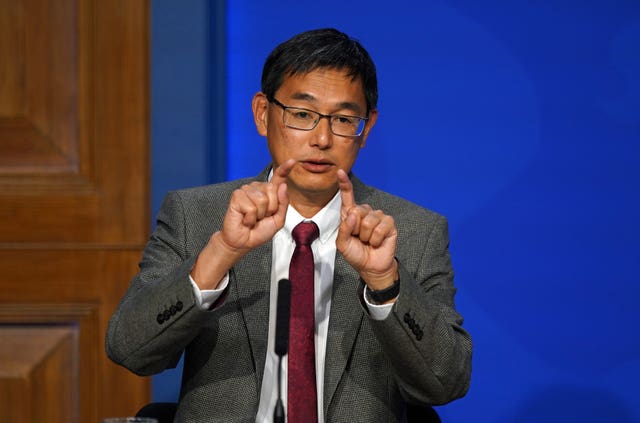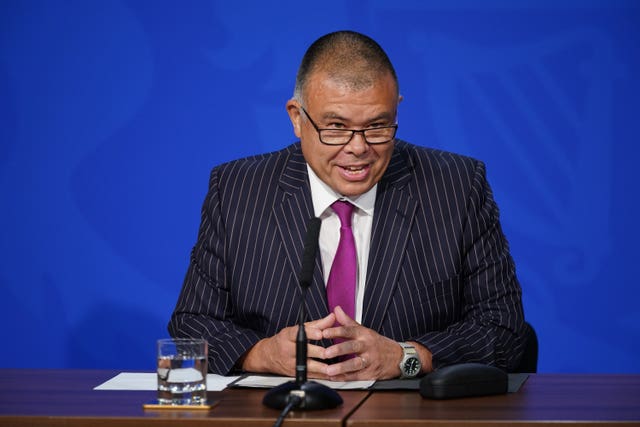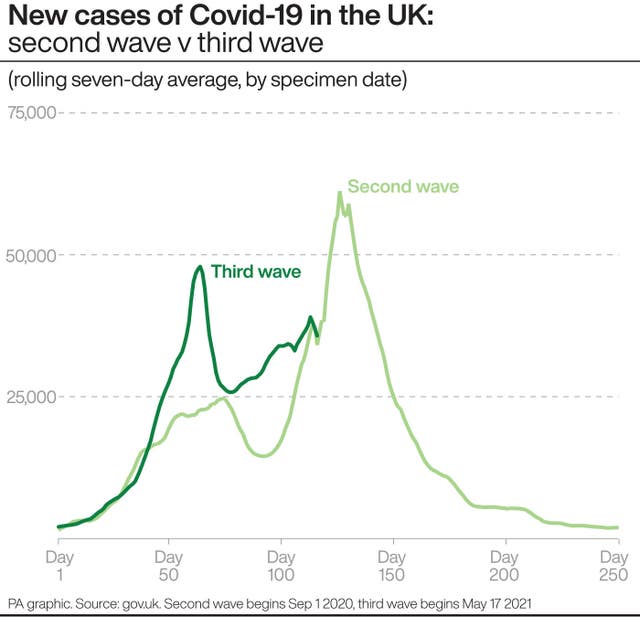Booster Covid jab to be offered to people aged 50 and over
The vaccines will be rolled out shortly, starting with care homes and older age groups.

Booster vaccines are to be offered to people aged 50 and over, those in care homes and frontline health and social care workers.
The Pfizer/BioNTech vaccine will be used as the booster dose for more than 30 million people, with experts saying it is safe to be given alongside the usual winter flu jab.
People will be able to get their Covid and flu vaccines on the same day, preferably with one in each arm.
All those who are clinically extremely vulnerable and anyone aged 16 to 65 in an at-risk group group for Covid (who were included in priority groups one to nine during the initial vaccine rollout) will also be eligible for a jab.
Three vaccines have been approved as safe and effective as boosters – AstraZeneca, Pfizer and Moderna – but experts have decided to opt for Pfizer as a preference after studies showed it is well tolerated and works well as a booster.
It can be given to people who had two doses of AstraZeneca previously.
Moderna may be used as an alternative, but as a half-dose booster shot after studies showed it was effective, with few side-effects.
People should receive their third booster dose at least six months after they received their second dose of a Covid vaccine.
When there is more data, experts from the Joint Committee on Vaccination and Immunisation (JCVI) plan to look at whether boosters should also be offered to healthy people under the age of 50.
Professor Wei Shen Lim, chairman of Covid-19 immunisation for the JCVI, said: “The UK’s Covid-19 vaccination programme has been hugely successful in protecting people against hospitalisation and death, and the main aim of the booster programme is to prolong that protection and reduce serious disease as we head towards the colder months.

“The JCVI is advising that a booster dose be offered to the more vulnerable, to maximise individual protection ahead of an unpredictable winter.
“Most of these people will also be eligible for the annual flu vaccine and we strongly advise them to take up this offer as well.”
The new guidance from the JCVI appears to differ to its interim guidance published in June.
The interim guidance said anyone over 16 who qualifies for a seasonal flu jab would be included in the booster campaign, which would have included millions of people with asthma.
This has been scrapped and only those in original priority groups one to nine will be offered a booster, meaning not all those with asthma may be included.
Professor Jonathan Van-Tam, deputy chief medical officer for England, told a Downing Street briefing: “We know that this pandemic is still active, we are not past the pandemic, we are in an active phase still.

“We know this winter could be bumpy at times and we know that winter viruses such as flu and RSV (respiratory syncytial virus) are highly likely to make their returns.
“So with that in mind, the aim if the game, the mantra, is to stay on top of things.”
Prof Van-Tam said that if he was offered the flu jab and a Covid-19 booster at the same time he would take it.
Prof Lim said the JCVI had examined surveillance data and information from recent clinical trials as well as looking at operational considerations.
He told the briefing: “Hopefully this will mean that levels of protection that people have will be highest during the coldest months of the winter.”
The advice does not imply there will be a booster programme every six months, he said.

It comes as Boris Johnson is due to set out his blueprint for “living with the virus” through the winter during a Tuesday afternoon press conference.
There are concerns in Whitehall about an increase in coronavirus cases hitting at the same time as a flu outbreak, with experts warning “we’re not out of the woods”.
Vaccine minister Nadhim Zahawi said further lockdowns will be an “absolutely last resort” under the plan.
He told the BBC the boosters could be the “last piece of the jigsaw to allow us to transition this virus from pandemic to endemic” and by next year there could be a flu-style annual jab.
Earlier, Professor Calum Semple, a member of the Scientific Advisory Group for Emergencies (Sage) panel which advises ministers, warned of a tough time ahead for the NHS.
“Now that we’re opening up society, we’ve got to… live with not just Covid but the flu will come back, RSV bronchiolitis will come back, so I think we’re going to have a bit of a rough winter,” he told the BBC.
He added: “I can predict that the NHS is going to have a really tough time and it wouldn’t surprise me if local directors of public health may be suggesting use of face masks in shops and on public transport.”
The winter plan will see vaccines as the first line of defence, supported by testing, public health advice and a new variant surveillance system.
It is thought ministers will retain the options of a return to wearing face masks in public places and restoring work-from-home advice if cases take off again.
However, other measures – such as requiring vaccine passports for people attending nightclubs or other crowded venues – have been shelved.
It is expected the Government will announce it is repealing a swathe of powers taken through the Coronavirus Act which are no longer considered necessary.
They include measures to close down sectors of the economy, apply restrictions to events and gatherings and powers to detain infectious people.
Some measures will be retained – including sick pay from day one for people who are self-isolating, powers to direct schools to remain open if they close against Government guidance, and helping the NHS get emergency resources.
It will remain a legal requirement for people to self-isolate if they test positive for the disease.





